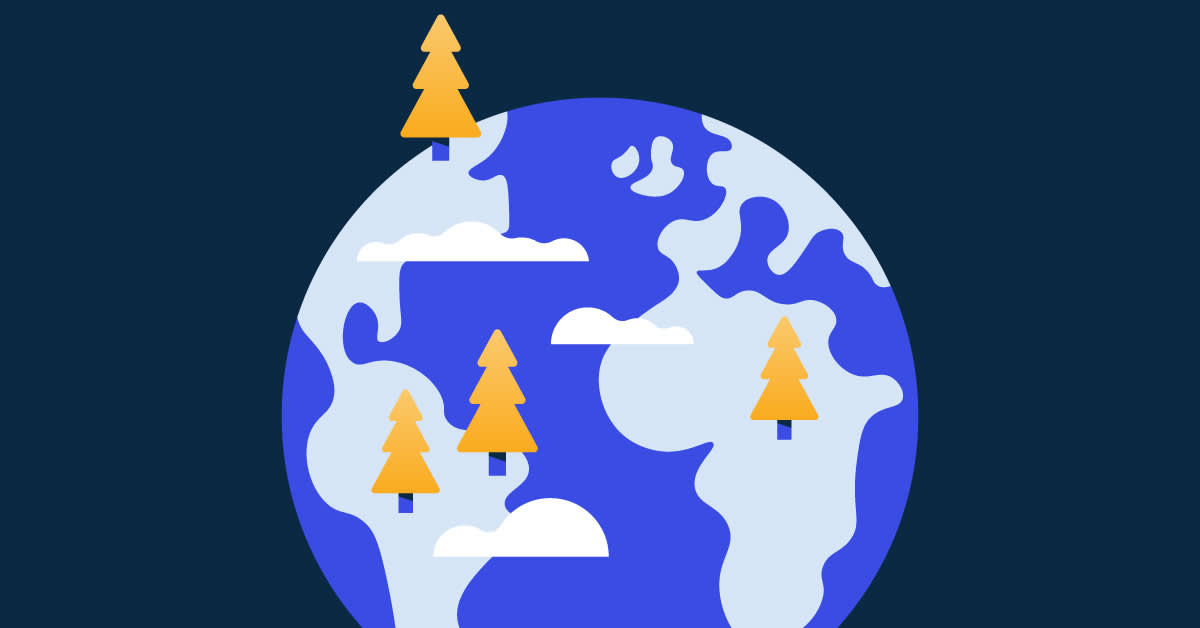Like so many others, I was completely blown away by that video that went viral years ago about the return of the wolves to Yellowstone and the remarkable impact they had on the entire park, from the deer population to the habits of the beavers to changes in erosion to, ultimately, the very paths that the streams and rivers took. (If there is a book companion to that story it is American Wolf, which won our award for Best Nonfiction in 2017.) I’m not a huge nonfiction listener, but I have found that those close examinations of the profoundly complex and impactful activities of a single species, or category of living being, can be as mind-bending as my favorite works of science fiction. I’m especially intrigued by those stories that don’t focus on the interplay between man and beast, but instead illustrate how often beast couldn’t care less about man. Below, I’ve shared some of my favorites, and I especially love when a science-y author narrates their own work—the enthusiasm and wonder is palpable—so definitely look out for those!
I can’t seem to place a single tomato plant or weed a tiny corner of a tinier flower patch without turning up more than three earthworms, so the sheer volume of these little suckers has long astounded me. To be so prevalent they must have a purpose, and as author Amy Stewart (fun fact, her two writing beats are horticulture and historical thrillers) reveals, they are indeed very busy and totally (literally) blind to our fascination with them. Earthworms are not only the greatest composters and soil ploughers around, they may also hold the key to some much-needed leaps in environmental science.
We can't talk about powerful changemakers in nature without talking about fungus. Various species of fungi have the potential to feed you, poison you, trip you out, or cure you. They may even be controlling our minds, and the percent chance that fungi will cause a zombie apocalypse is definitely not zero. And let's be honest, mushrooms are just downright weird. Fungi is at the heart of everything, literally entangled in our world (per this title). It is more often than not the wizard running the show, and Merlin Sheldrake is here to pull back the curtain and let you in on all its fascinating secrets.
Wow, did I love my ant farm as a kid! I could watch those busy little guys for hours on end. But I hadn’t really thought much about them as an adult until a pre-publication portion of Anthill was published in The New Yorker in 2010 when I was newly pregnant with my first child. I read the piece—so intricate and beautiful in its description of the minute, determined, and cooperative movements of the small creatures—and I felt a wave of nausea take over me. And it didn’t leave me for three months. I had to wait with the rest of the world to finish the book, and it was obviously for the best given my morning sickness, but I’ve never forgotten how enthralling I found E.O. Wilson’s prose. It completely captured my imagination and now I'm thinking it might be time to bring home an ant farm for my kids. **Bonus ant recommendation: Mort(e) imagines what might happen if a superior race of vengeful hyperintelligent ants plotted to take down mankind.
Whenever I garden it feels like I'm committing mass “maple-cide,” pulling up the shoots of little wannabe maple trees that sprout up in every pot and patch of dirt in my yard. I always have a tiny pang of guilt mixed with fascination when I examine the seed still clearly feeding the brand-new root structure. “Sorry buddy, you weren’t destined to make it,” I think. But then, birds have been doing lots of unbidden but successful seeding for me—in recent years I've had unplanned petunias, hollyhocks, and tomatoes sprout in my front yard next to my boxwoods. This book tapped into my ongoing fascination with the beginning of all green growing things, showing how seeds ultimately do triumph.
I could tell you I first got interested in the idea of tree communication when I picked up Katherine Applegate’s Wishtree, but I'd be lying—I totally developed a secret hieroglyphic language with my (surely sentient) family Christmas tree one year when I was a kid. So I love how Peter Wohlleben honors the childish—or perhaps innate—feeling that so many of us have that trees are somehow special among plants. In The Hidden Life of Trees he explains that there does seem to be a language belonging to them, and he reveals the science behind those fanciful (or not so fanciful) notions.
It’s important to note that the plural of “octopus” is “octopuses,” not “octopi” as many assume, which would give it the Latin treatment when “octopus” is actually a Greek word. And the reason you’ll want to know that is because there are two books on octopuses you’re going to want to pick up. Start with The Soul of an Octopus, Sy Montgomery’s touching memoir about her friendship with one of the creatures that sent her on a fascinating journey to understand the deep intelligence found within. And then pick up Other Minds for a closer scientific account of the development of consciousness within an octopus, and what it means for the brains of humans and other animals.
If you can't tell, I'm drawn to the personal stories that get someone interested in a topic or field of study, and that's why I can't wait to listen to Jasmin Graham's science memoir about her life with sharks (at the time of writing, its release is still two months out). Her love of sharks (which radiates from her videos I've seen online—she's going to be such a great narrator here) is multifaceted. Graham grew up in the Lowcountry of South Carolina, and so studying ocean life felt like a natural path. But when she found herself struggling to navigate the choppy waters of the racial status quo of academia, she developed a new kinship with the shark, the ocean's master of adaptability and survival. Graham went on to form Minorities in Shark Sciences (MISS), dedicated to creating a more buoyant space for scientists of color.
In my family growing up, there was more lore around jellyfish than sharks. This was because (true or not—it’s still unclear) my mother knew a kid who knew a kid who knew a kid who died after picking up a Portuguese man-of-war on the beach and holding it to his chest. When I first saw one of these surprisingly large creatures washed up on the shore of our beach in North Carolina, the primal fear was INTENSE. That something so dangerous doesn’t have a brain or bones somehow made it worse. But despite my discomfort with any one individual jellyfish, author Juli Berwald proves they are most fascinating when looked at en masse. Jellyfish serve as bellwethers—and if we know how to read their signs and signals, they can tell us a lot about what’s happening to our oceans, our ecosystems, and our world as a whole.
Author Roger Lederer correctly notes in this book that birds hold an immense nostalgic and romantic cultural symbolism for us land-bound folk. But I learned early on as a child when I spent four months nursing a dove who had been wounded (shot, to be more precise, by my dove-hunting and poor-aiming father) that hell hath no fury like a caged wild bird. Symbols of peace? Um, no. So I loved this little book for its revealing look at the harsh realities birds face and the fierceness they must summon to survive on high.
I included this book in the list because it’s such a great example of man trying to master a species and just utterly failing. Where American Wolf dealt with our attempt to bring an animal from the brink of extinction, we never got that far with the coyote despite our best efforts. Like deer but with teeth, the coyote learned to survive despite all the obstacles we put in its way, and this narrative of how the wily animal outsmarted us at every turn is just so fascinating and entertaining at once.
This marvelous listen delivered a new-to-me word, which my team can attest I now overuse: Umwelt. It's so good. In biology, “umwelt” is used to describe the perceptual universe that each individual lives within. A bat's umwelt (blind, sonar-using) is totally different from the nose-forward umwelt of a dog, or the highly visual, but actually not that great, umwelt of a human. And that's what this book ultimately does: By immersing you in the interior lives of various species, it helps you become aware of how fragile, unlikely, and maybe miraculous your own is.
Okay, so it turns out there is something freakier than a mushroom, and it’s parasites. Author Kathleen McAuliffe blew my mind (pun!) with her depiction of the complicated forces at work within the bodies of all living things (for the purpose of this book her view of parasites is broad, drawing on all the little microorganisms that hold sway over the actions of larger creatures in one way or another). While I’d gotten my head around basic Darwinist concepts somewhere back in grade school, the idea that small critters could be using me in their survival of the fittest, in their very proliferation, just seems bananas. Are parasites and other microorganisms the original AI? Technically, they're obviously missing the “A” part of “AI,” but they do seem to possess an underestimated intelligence that wields massive influence over the way complex multicellular creatures behave, reading to my science fiction-oriented imagination like a self-perpetuating glitch in the code.
Oh, how I love this book. This one stands out on the list because it’s a novel (the characters are the bees, and all the drama, tension, and romance happens among them in their vibrantly depicted world), but I would argue it’s just as instructive as any of the nonfiction picks here. When I first listened to it, the microcosmic world lavishly described here—and almost erotically performed by Orlagh Cassidy—threw my own world into relief and made me feel, surprisingly, rather small. That this full experience of life—dramatic, messy, complicated, and harrowing—is happening all around us, and even just in my back yard, but on a tiny scale, is incredibly humbling. It also made me a better and more keen observer of nature. And now I’m just DYING to become a beekeeper one day.
This is one of those special books that takes a seemingly ordinary topic and turns it suddenly magical. We think of plants as more or less static organisms, the set design behind the action of our animal lives, yet Stefano Mancuso demonstrates their surprising animation and intelligence, both as individuals and communities. And though I haven't picked it up yet, The Light Eaters from Zoë Schlanger seems like a worthy follow-up listen given the praise it's earning. I love the idea that plants have a rich interior life that we can't see on the surface (remember my sentient Christmas tree? This one feels right in my wheelhouse).
I might have been a little too invested in the trials, tribulations, and—ultimately—tragedy of Flaco, the Eurasian Eagle Owl that captivated New York City in 2023. He represented that type of freedom that we humans collectively mythologize; he became a common cause for a diverse city to rally around. But isn't that the thing with owls? From Ascalaphus to Hedwig, they anchor our storytelling, but how much do we know about these mysterious and notoriously hard-to-study birds? Jennifer Ackerman, as both expert and narrator, delivers the science in this delightful and enlightening listen.
When listening to Rachel Joyce's wonderful Miss Benson's Beetle, I learned that the vast majority of known living creatures (about 50 percent) are insects, and of those a full third are beetles. Beetles rule the world. Except, that stat might be swayed by the beetle's collectibility (you read that right—it was all the rage in the Victorian era). The true ruler of the animal kingdom may in fact be parasitoid (or parasitic) wasps. They account for a large—and largely unseen—subset of critters. And while this might sound horrifying, we should all be grateful to them; parasitoid wasps generally use other insects as hosts, and are therefore a huge contributor to the biocontrol of insects as well as the succesful functioning of many of Earth's ecosystems.
Trying to analyze this "movement" would ruin the fun, but needless to say the Birds Aren't Real guys defintiely tapped into our tendency toward suspicion when nature seems to be working too well. Let's take this as a reminder not to mess with magic.





















